Not all of the restaurant in my best and worst round-up opened this year, because I’m not especially fast on the uptake. Lots are in London, where I live. I prefer not to kick places nobody would have gone to anyway, so the “disappointments” are openings at which, thanks to their location or PR spend, you might have ended up by mistake.
I will also add, that it was not planned that two of my five favourites would be called Root and Roots.
The sense I got from talking to chefs, staff and other industry-types this year was that they were continuing to fight Brexit uncertainty, which has hardly been mollified by the Tory general election win. Chefs and front-of-house are harder to find. Imported goods are more expensive. A bump in tourist numbers might help some in the centre of London, but can’t compensate for the overall downward pressure.
Food markets continued their unstoppable march. Between Market Hall in Victoria and the West End, the Arcade Food Theatre at Tottenham Court Road and Kerb Seven Dials, the capital has been overrun by new halls filled with variously bouji traders. Soon we will all be living in a food hall, so we might as well get used to it.
The appeal to restaurateurs is obvious: lower overheads, higher footfall and strength in numbers. In theory, customers also benefit from the wide range and lowish item cost, making it good for groups, or at least groups where someone wanted a taco or some chicken wings.
In practice the extra choice can come at the expense of atmosphere and soul, and the costs quickly add up.
Deliveroo and Uber Eats continue to muck around with business. It’s not totally clear if they are good or bad news overall, but their helmet-clad drivers continue to disrupt plenty of previously harmonious dining rooms.
It is a good time for bakeries, with Popham’s, Jolene and Flor among those using bakes to help improve their all-day and takeaway receipts, and places like Landrace, in Bath, reviving historic British grains.
There are more and better regional Chinese restaurants, fuelled by ever-increasing numbers of students and a more educated customers. Driven by new online publications and American trends in food journalism, writers and readers are paying more attention to food outside well-financed central London, and to the politics of what we eat.
Even when you can’t spend more, you can always spend better.
Five favourites
Roots
Strapping son of Yorkshire, Tommy Banks, square of jaw and magic of palate, might have been dreamt up by a politician to serve as an ambassador for British cuisine, winning over the nation’s thirsty housewives in the process. With Tommy in charge of the kitchen, his family’s pub, the Black Swan at Oldstead, won a Michelin star and was Tripadvisor’s number one restaurant in the world, whatever that means. His second restaurant, Roots, in York, proves it wasn’t a fluke. Charming staff are obviously proud to serve there, and they’re right to be. Dishes like bread with Lincolshire poacher custard and crapaudine beetroot steeped in beef fat are bright, bold and served with a pleasing kind of homely authority: the Yorkshire way.
Master Wei
Earlier this year Wei Guirong, the co-founder of beloved but tiny Highbury Shanxi restaurant, Xian Impression, stepped out on her own with Master Wei, a larger site with a longer menu, in Russell Square. The highlights from Xi’an Impression are still there, like silky cold skin noodles in chilli sauce, fat, biang biang noodles enlivened with chili, and beef buns, headily aromatic with cumin, as well as a broader range of dishes. Don’t bother with the salad.
Levan
A clear sign of how much Peckham has changed in the past 10 years, Levan is a small-plates wine-bar with a well priced set-menu, where a bright young team prepare seasonal ingredients with skill, care and consistency. These neo-bistros are increasingly more common in London’s villages, slowly replacing the traditional gastro-pub for those who prefer natural wine to burgers and lager. Forget what’s happening in politics; British stomachs are still slowly turning French.
Root
Bristol’s food scene has been thriving for years and the city is now one of the best places to eat in the country. Root is one of its leading lights, a brilliant little restaurant in a boxpark-style array of shipping containers by to the river at Wapping Wharf, and next door to another fine shipping container restaurant, Box-E. At Root you’ll find an ever-changing menu of seasonal dishes, with large flavours emerging from an improbably small kitchen. We had a sirloin with chimichurri, ewes curd in chicory, charred hispi, cured bream with cucumber. You’ll probably eat something else. But what’s for sure is that you’ll enjoy it.
El Camino
Strictly speaking this is in Palma, but it has a strong connection to London and it was one of my favourite restaurants of the year. Eddie Hart is one-third of the brothers who make up the Harts Group, the maestros behind Barrafina, El Pastor and Quo Vadis, among others in London. Craving a slower lifestyle, Eddie moved back to Mallorca, where he spent summer holidays as a child, and opened a restaurant. Selling tapas back to the Spanish sounds like an uphill challenge, but using his years of expertise from Barrafina, he and his business partner, Samuel, created a chic, buzzing, sophisticated restaurant, which holds Palma to central London standards.
Five disappointments
Gloria
A much-hyped import from Paris, Shoreditch’s Gloria (and its sister in Fitzrovia, Circolo Populare) promised to bring Capri glamour to dark London nights. They wooed most of the reviewers, especially those based on Instagram, with surprisingly passable Neapolitan pizza and pasta swizzled table-side in a bowl of pecorino. But behind the marble and mirrors is a notable lack of heart. Let’s hope this isn’t the future.
Za
It was an annus horribilis for Pizza Express. A series of stories about its financial travails compounded by Prince Andrew using the Woking branch to counter allegations he had sex with a teenager in 2001. In an attempt to stave off what increasingly looks like an inevitable administration, the chain revamped its Portland Place flagship branch and trialled “Za”, a lamentable slice-based assault at the Pret market in Fenchurch Street. Do not ask for whom the dough balls toll, they toll for PE.
Eggslut
One of the worst names in restaurant history, and it only gets worse from there. Eggy grease-slop for the credulous and naive.
Arcade Food Theatre
They insisted on being called a theatre, which is about a big a red flag as you can imagine. The most aspirational of the deluge of food courts, the Arcade has no shortage of respected names: Soho’s Lina Stores for pasta, Flat Iron for steak, Oklava for Turkish food. Most hyped of all is Tou, masters of the much-hyped pork sando. None of the dishes are as good as they are in their original berths, and the large, designed space feels cold and corporate where you long for a little bonhomie.
Wahlburgers
Mark Wahlberg is an actor. His surname sounds like the start of the word “burger”. Therefore he has a chain of hamburger restaurants with his brothers. By the same logic I ought to open a Ming china shop. On the evidence of Wahlburgers’s first outpost in London, I wouldn’t be any worse at shifting china than he is at overseeing patties in buns. A cynical, underwhelming distraction from London’s better options, which is to say all of them.




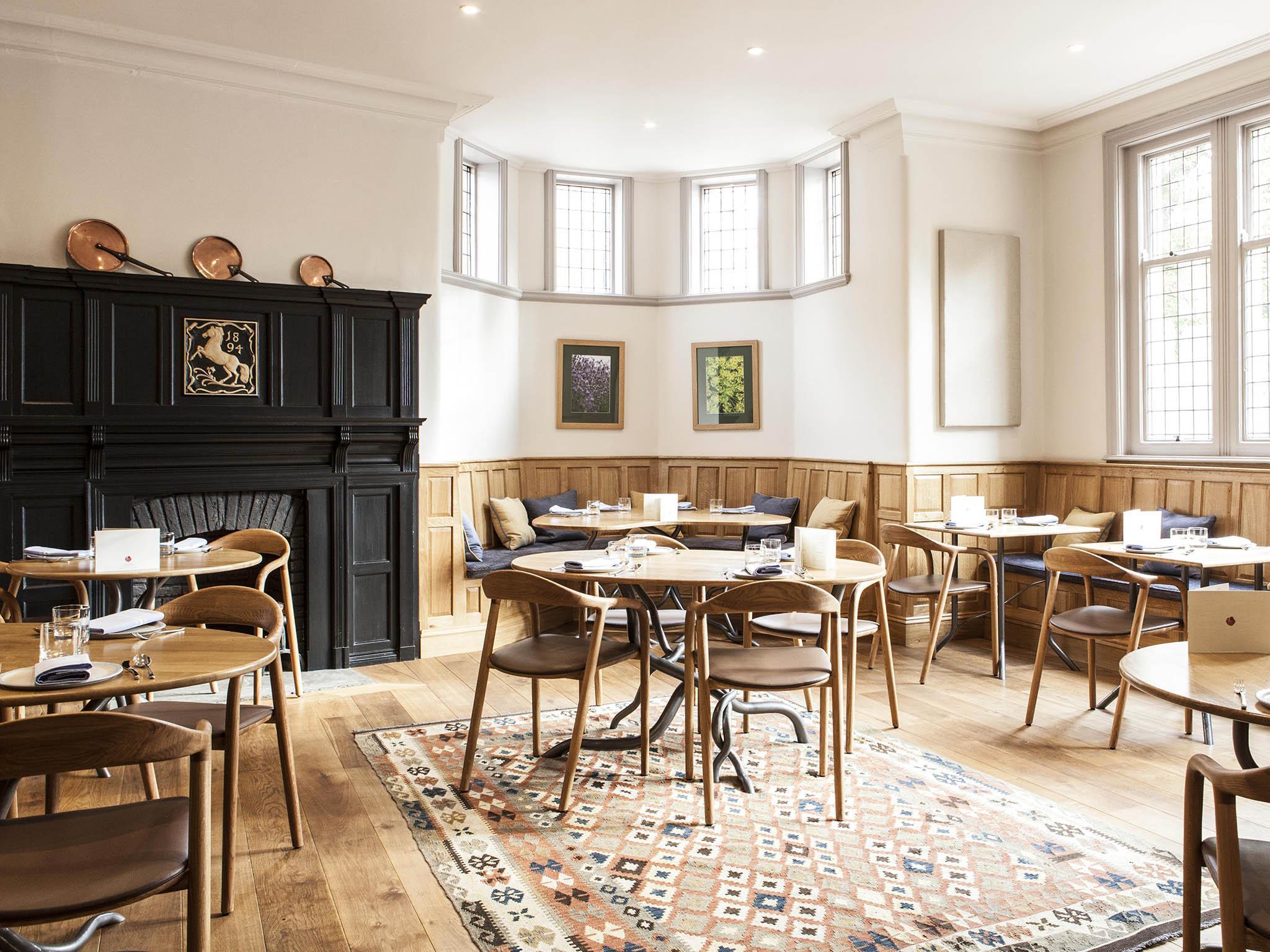
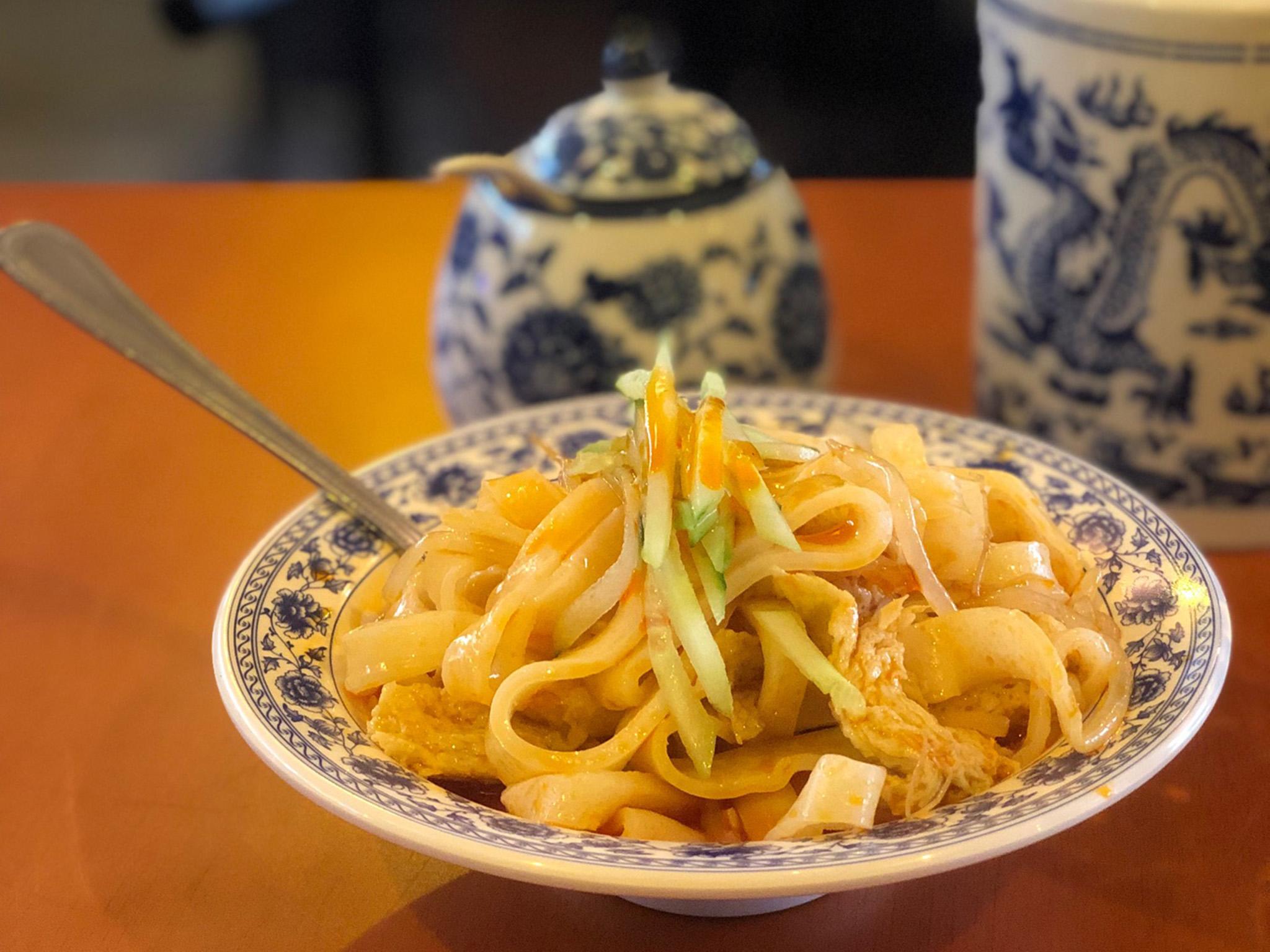

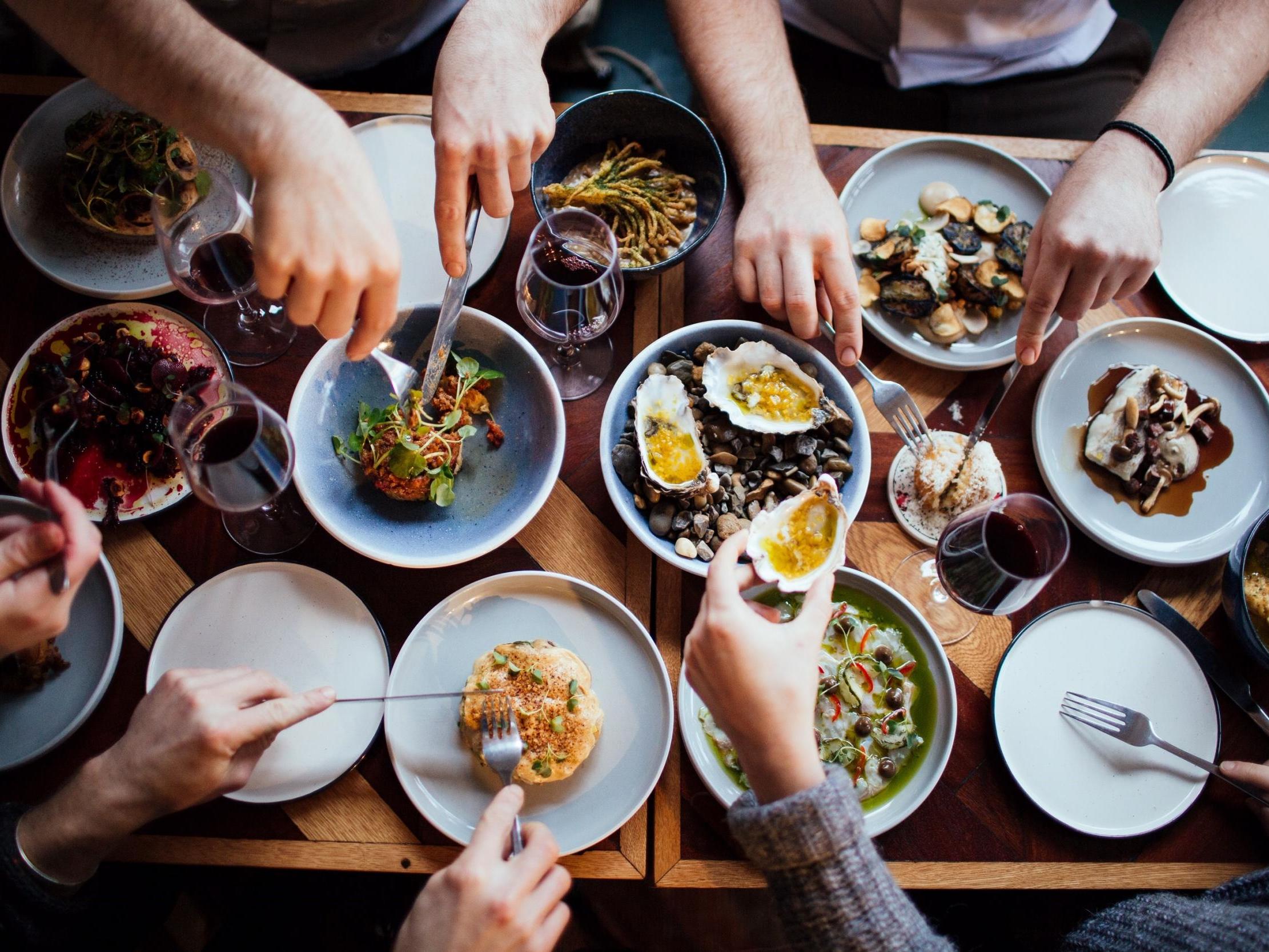
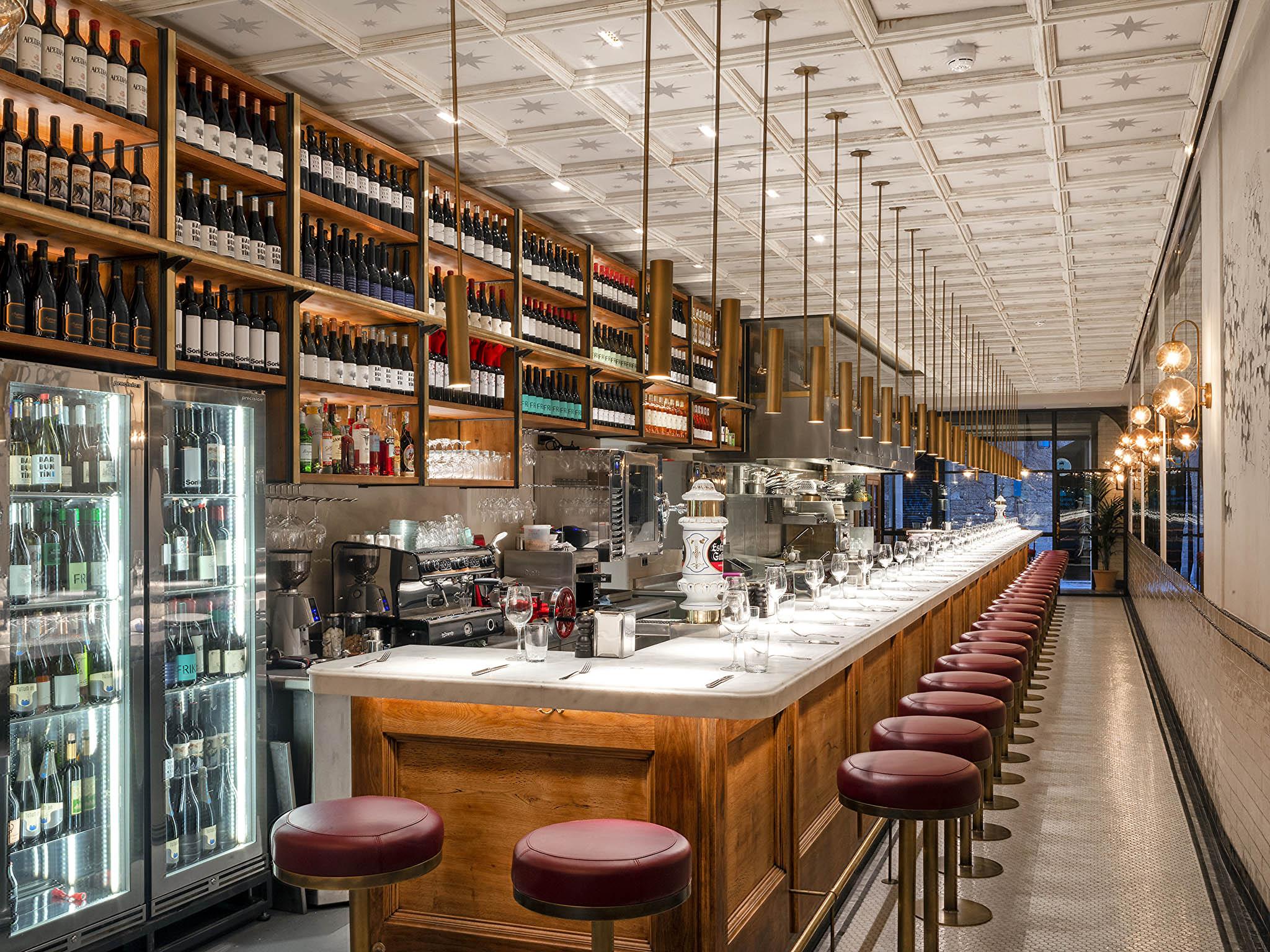
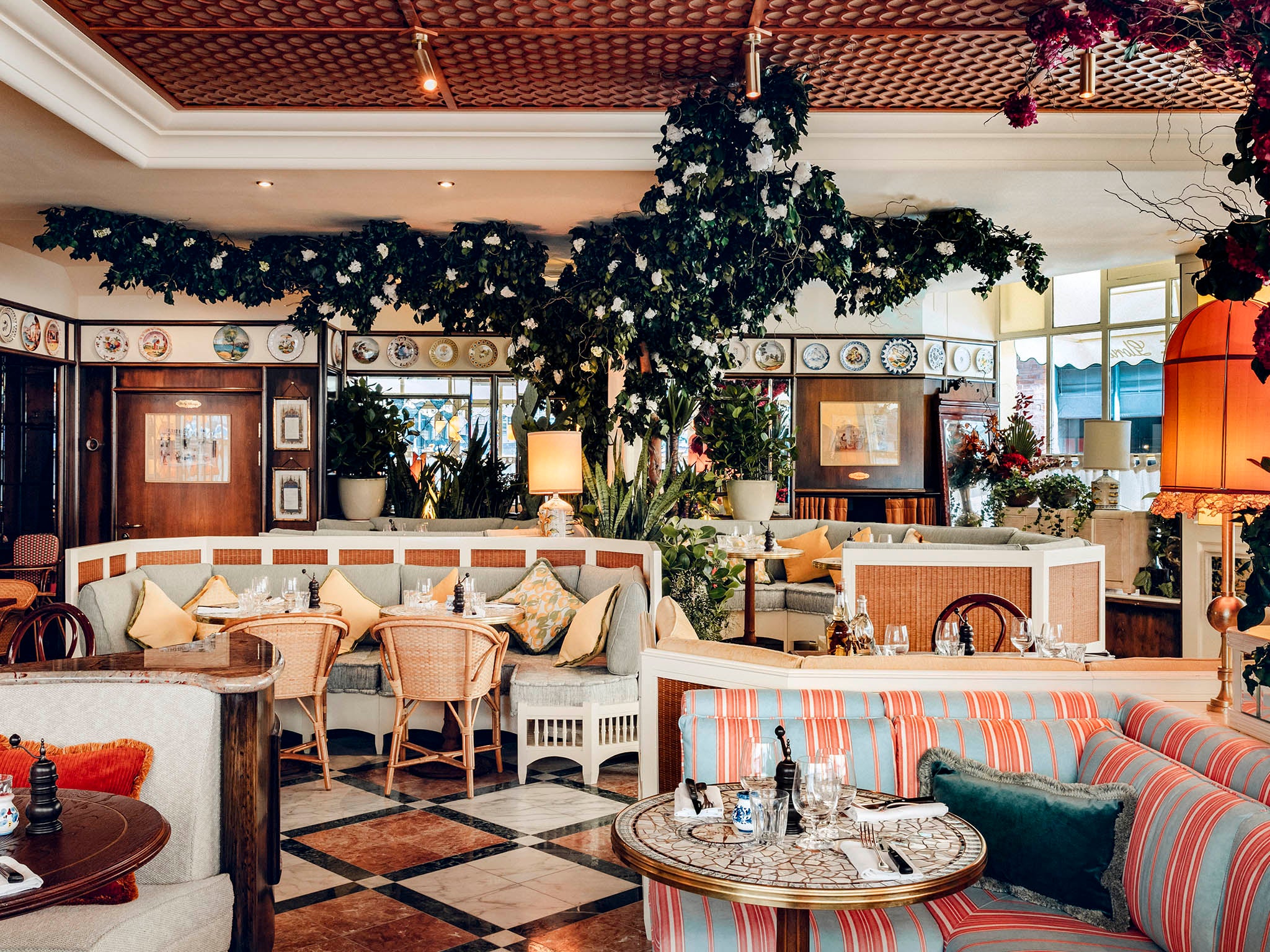
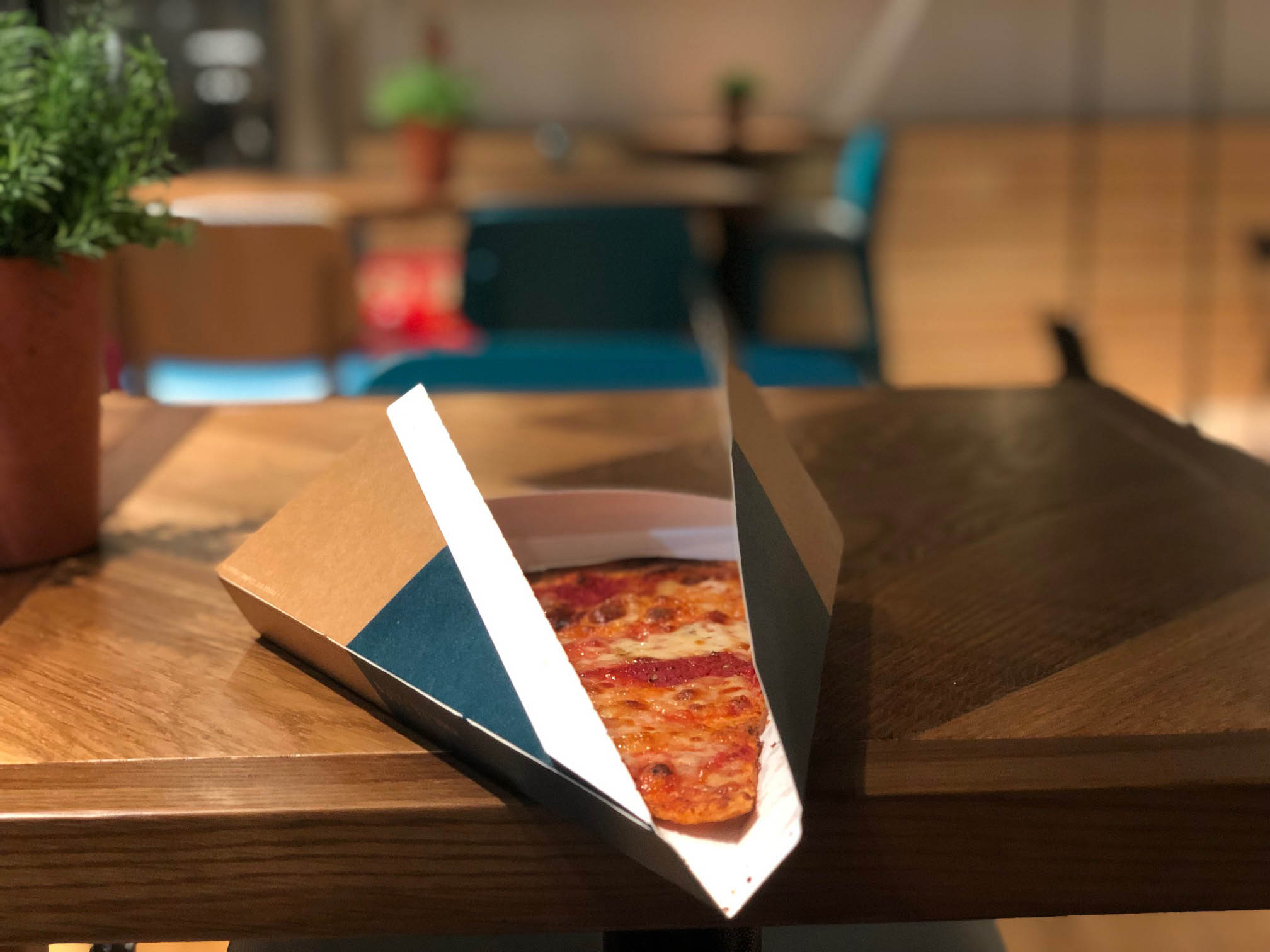
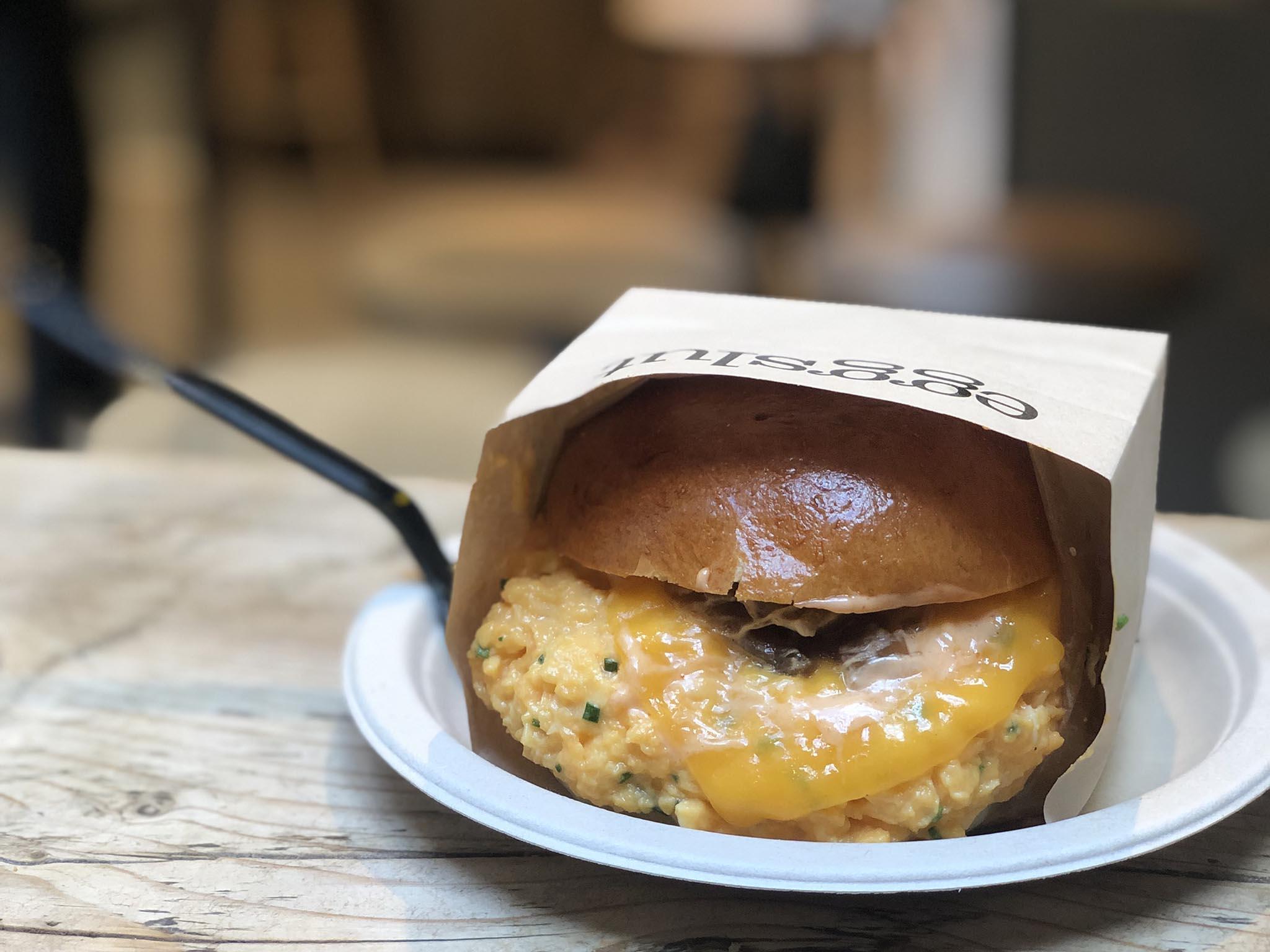
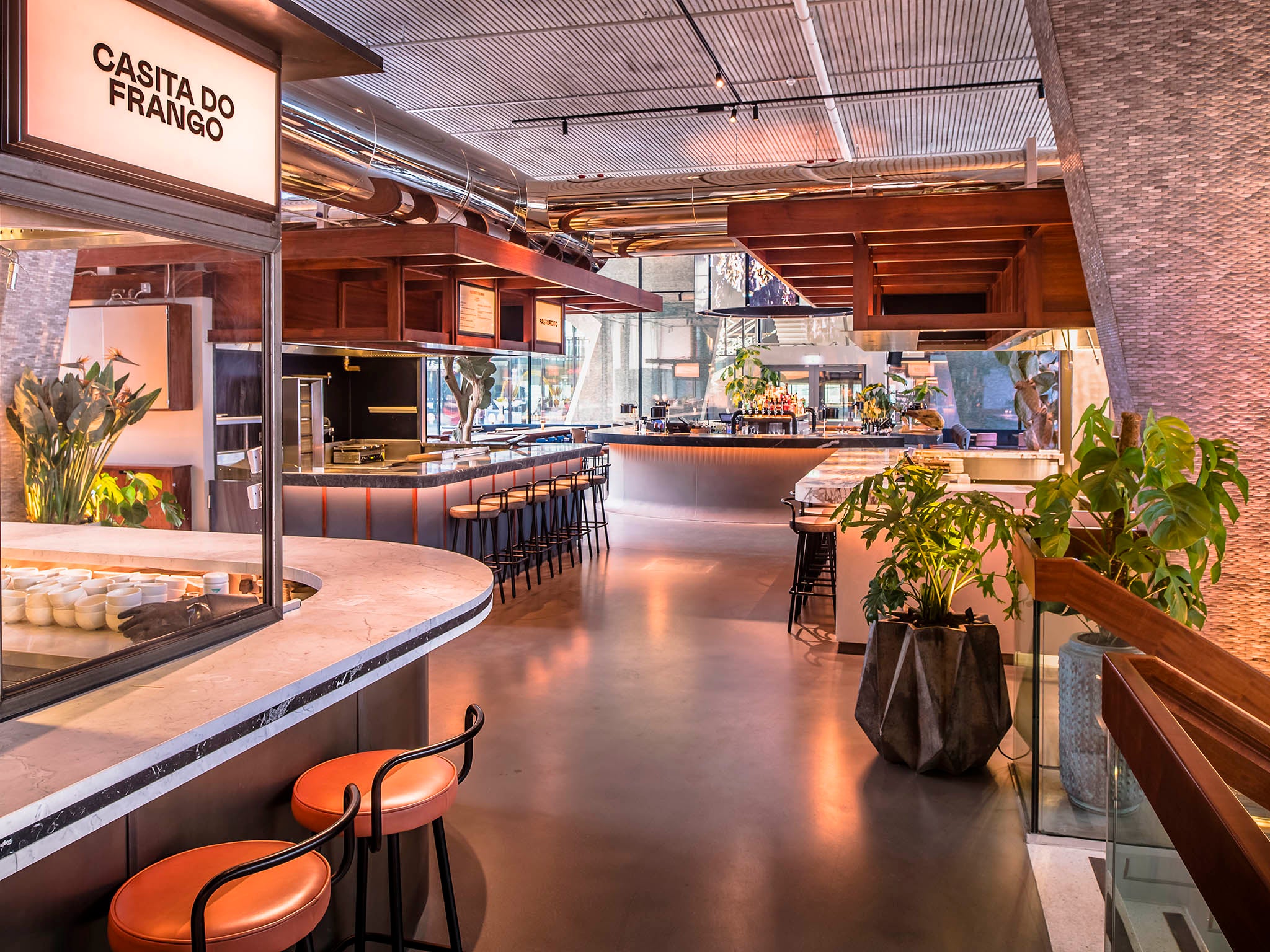
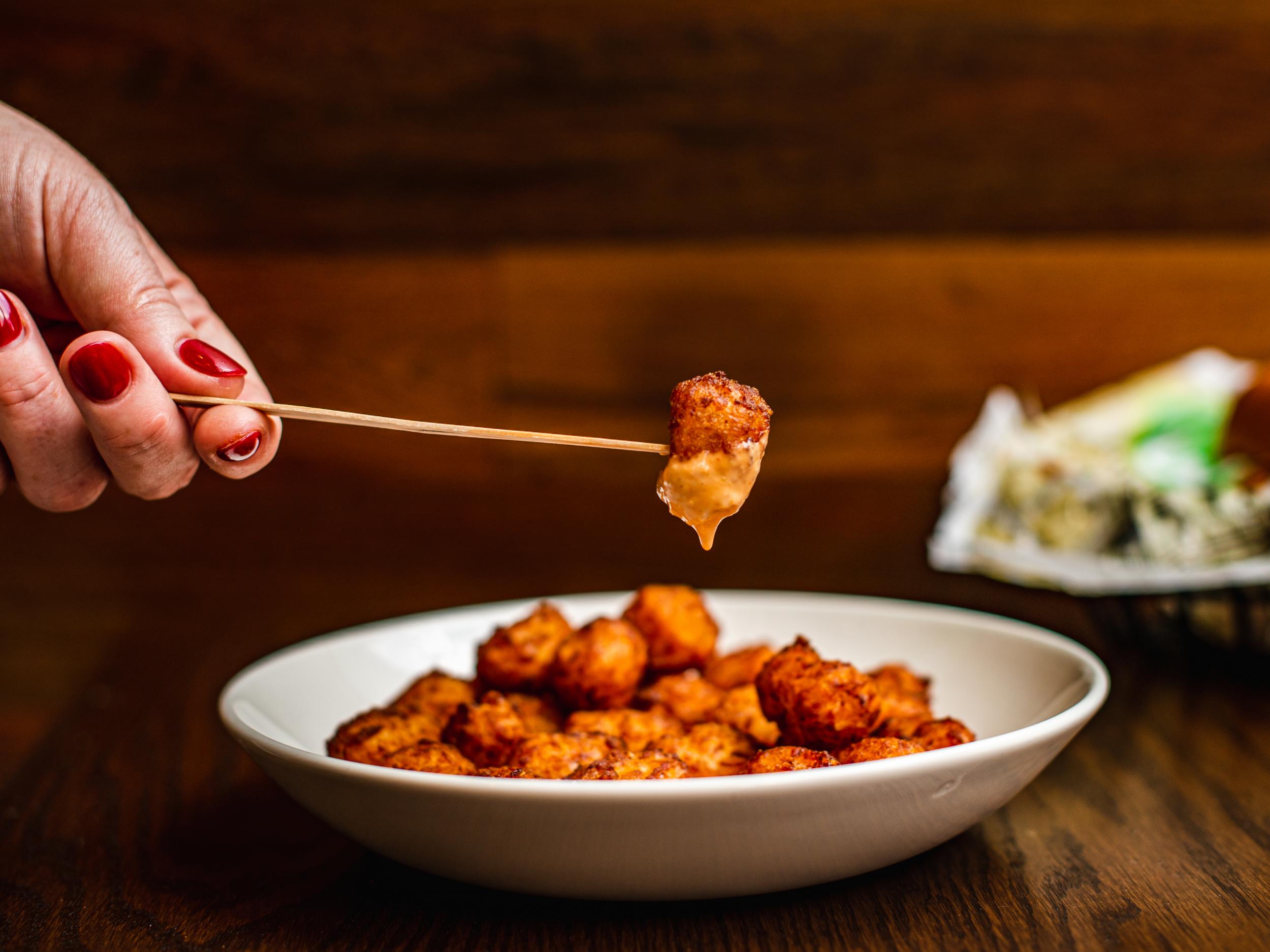

No comments:
Post a Comment